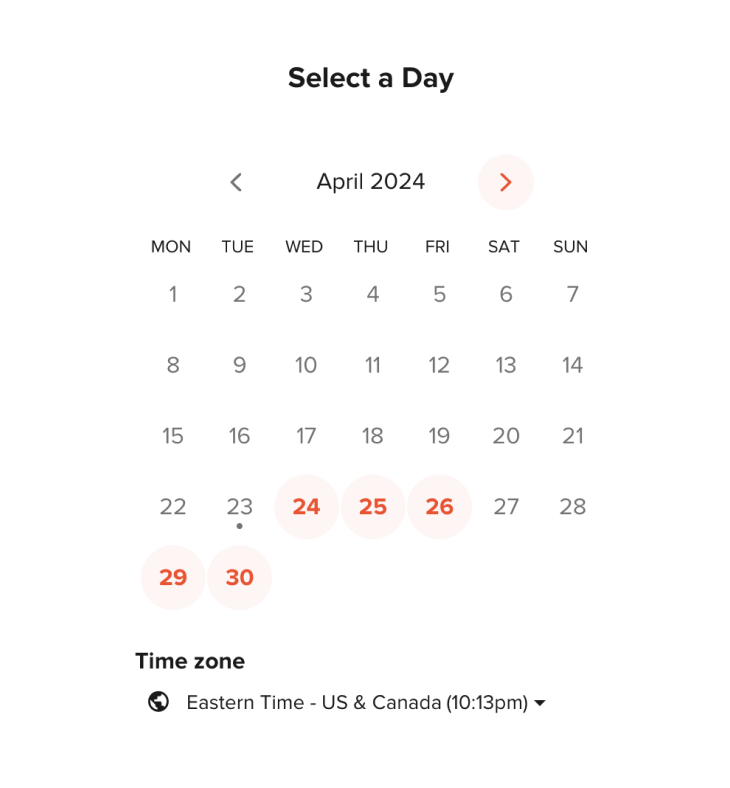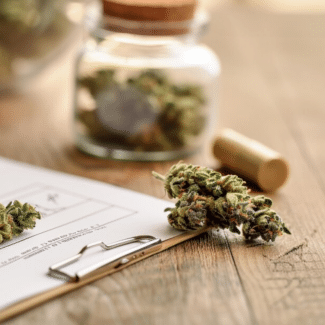How to Get a Cannabis License in Arizona
Acquiring a cannabis license in Arizona involves understanding both state and local regulations, preparing a comprehensive business plan, and submitting an application with essential documentation. This process, while complex, opens doors to a lucrative market for both medicinal and recreational cannabis, driven by recent legalization changes. Entrepreneurs must navigate various requirements, including fees, inspections, and compliance measures to establish a successful cannabis business in the state.

Legalizing cannabis in Arizona has created promising opportunities for entrepreneurs and business owners, but navigating the licensing process can be complex and challenging. This article will help you understand the requirements and procedures for acquiring an Arizona cannabis license better.
Arizona Cannabis License Regulations
Medicinal marijuana became legal in Arizona in 2010, giving birth to the state’s Marijuana Program (ADHS). Cannabis for recreational use became legal in November 2020.
Cannabis in Arizona offers a viable market for both medicinal and recreational use, with minimal State regulations provided by the Arizona Department of Health Services. There are opportunities for new Arizona cannabis license holders due to the lack of MSOs and the emergence of a new adult-use market.
In addition to the 6%-9% in-state sales tax, recreational purchases are subject to an additional 16% tax. In comparison, the state and local taxes on medical marijuana are 6.6% and 2-3%, respectively.
There is a restriction on the overall number of dispensaries in the entire state at around 143 or one dispensary for every ten pharmacies.
Adults in Arizona are permitted to own up to 2.5 oz of medicinal marijuana and 1 ounce of recreational marijuana.
Arizona received $196.4 million in cannabis tax revenue in the nine months of 2022. This suggests that Arizona’s government collected approximately $22 million in cannabis tax revenues in just a single month.
In Arizona, you may apply for one main cannabis business license:
The Marijuana Establishment License
Important: Arizona has one type of license (a marijuana establishment license) that allows an entity to produce marijuana, process it, and sell items that have marijuana in them.
A marijuana establishment license must be obtained in Arizona by any person or organization planning to engage in the commercial marijuana industry there.
How to Obtain a Cannabis License in Arizona?
Although it may be difficult, obtaining a cannabis license is not impossible. The general procedures for acquiring a cannabis license in Arizona are as follows:
Research and Prepare
For cannabis businesses in Arizona, different City and Town governments have other requirements for licensing; however, state requirements are the same for all applicants.
A dual licensee is an organization that has both a Marijuana Establishment License and a Non-profit medicinal Marijuana Dispensary Registration Certificate. The dual licensee can have a single retail location where it can sell marijuana products for both adult and medicinal use.
The general conditions for acquiring a license are as follows:
- Older than 21 years old
- Complete application submission
- A recent photo of the facility agent taken at most 60 days ago with your application
- A copy of your ID from the government
- Provision of fingerprints
- Non-refundable application payment.
- Fill out a form attesting to the truth of your information and your lack of a conviction for an “excluded felony offense.”
You must agree to have your fingerprints submitted as part of the application process in addition to background investigations for criminal history.
Develop a Solid Business Plan
Having a solid cannabis business plan is very important in Arizona. You must specify the type of dispensary you intend to create, how long you intend to run your company in Arizona, and other relevant details as part of the application process.
In addition to being smart from a commercial standpoint, planning is essential for the next steps of obtaining funds and a license.
A business plan must outline the following:
- Costs that are anticipated to be incurred, both now and in the future, when the dispensary is open.
- Estimates of revenue.
- Floor and site layouts.
- Job descriptions.
Your Cannabis Business Deserves the Best
Assemble the Necessary Documentation
You should provide the following information mentioned by the ADHS, such as:
- The name or legal description of the planned marijuana business.
- The county where the applicant envisioned opening a marijuana business.
- The prospective marijuana business’s address.
The following documents are required as necessary information related to the applicant:
- Name of the entity
- Business organization type
- Telephone number, postal address, and email
- If the corporation is not a publicly listed company, each senior officer’s and board member’s name, birthdate, and home address.
- An affirmation that the data submitted to the ADHS throughout the application procedure is accurate and truthful
- Whether the applicant consents to let the ADHS obtain more information
- If granted a license, the prospective marijuana business will await an ADHS inspection and clearance before opening.
- An affirmation that the license applicant is mindful and will follow all ARS regulations.
- For publicly listed companies, provide the name, date of birth, and residential address of each major officer entitled to at least 10% of the profit.
- The names of each board member and chief executive officer of the planned marijuana business were signed, along with their dates of signatures.
- The Arizona Corporation Commission (ACC) can be contacted for evidence of the applicant’s good standing.
- Bank records that show you have paid the license application cost for a marijuana business
- A Pro Forma for the next two to three years is also provided as part of the official Business Plan.
Licensed Facility Agent
A major official, board member, employee, or volunteer of a marijuana company or marijuana testing facility holds the title of a marijuana facility agent.
You will need a current marijuana facility agent license to operate at a marijuana business or a marijuana testing facility.
Facility Agent application forms needed:
- Attestation by a Facility Agent
- Checklist for Facility Agents
- Fingerprinting guidelines form
- FBI Privacy Act Statement
Submitting the Application
You can fill out and submit your application for an Arizona cannabis license once you’ve finished collecting the required paperwork.
Before submitting your license application, you must own or rent a qualified place. Provide evidence of compliance with zoning regulations, especially regarding proximity to childcare facilities or schools.
Remember that Arizona ranks applications according to the following:
- Your selected location must be at least 25 miles away from the following licensed dispensary.
- To operate as a non-profit medicinal marijuana dispensary, a location must have already been registered.
- If multiple applications are submitted from the same place, the license goes to the applicant serving the most patients within a five-mile radius.
Therefore, remember to do your homework and choose your retail location wisely.
Fees and License Costs
The application and registration fee for a cannabis license in Arizona is $5,000.
The first non-refundable cost for a Marijuana Establishment License is $25,000, and the annual renewal fee is $5,000.
The licensee shall pay $2,500 to modify the physical address of the marijuana establishment’s facility. Additionally, it costs $2,500 to add a cultivation site to an existing marijuana business.
Application Review and Compliance Inspection
Candidates should examine and submit the application details after giving the necessary information and uploading the required documents.
The total processing period for a marijuana establishment license application in Arizona is 60 business days (including 30 days for administrative completion and another 30 days for the ADHS’s substantive evaluation).
The total application processing period for authorization to operate as a marijuana facility is 90 days of operation (30 days for administrative completion and 60 days for technical evaluation by the ADHS).
The marijuana establishment owner can use the license for any activity, given they have necessary ADHS permissions.
Remaining Compliant with Arizona Regulations
The Arizona Department of Health Services (ADHS) regularly inspects the growing facilities and medicinal marijuana shops to ensure compliance. The best way for a cannabis business to stay ahead is by understanding the regulatory inspection.
During an inspection, ADHS officials evaluate if statutory and regulatory requirements are being followed, including whether medical marijuana businesses have correctly packed and labeled their products and whether they have enough video monitoring of their facilities’ premises.
While no specific legislation or rule dictates the inspection schedule, the ADHS plans to visit each medical marijuana facility annually.
Staff uses an ADHS-managed database to schedule inspections, which contains several pieces of information on medical marijuana establishments, such as the dates of past compliance inspections.
ADHS officials access the database each month to determine which institutions had a compliance inspection the previous year and are thus overdue for one.
The Department issues a written statement of defects to the medical marijuana facility after the inspection, detailing the particular legal infraction(s) discovered.
Producers must label every cannabis product sold in Arizona with specified information and pack them in child-resistant packaging. The label must have a warning statement and other necessary information, and the package must be opaque or transparent.
Cannabis firms in Arizona can ensure that their products are secure and in compliance with state laws by adhering to these rules.
Final Thoughts
Obtaining an Arizona cannabis license demands planning, rule adherence, and understanding the procedure. Follow instructions to increase chances.
So, keep your business insured and yourself committed to running a law-abiding and responsible cannabis company in compliance with Arizona legislation.





